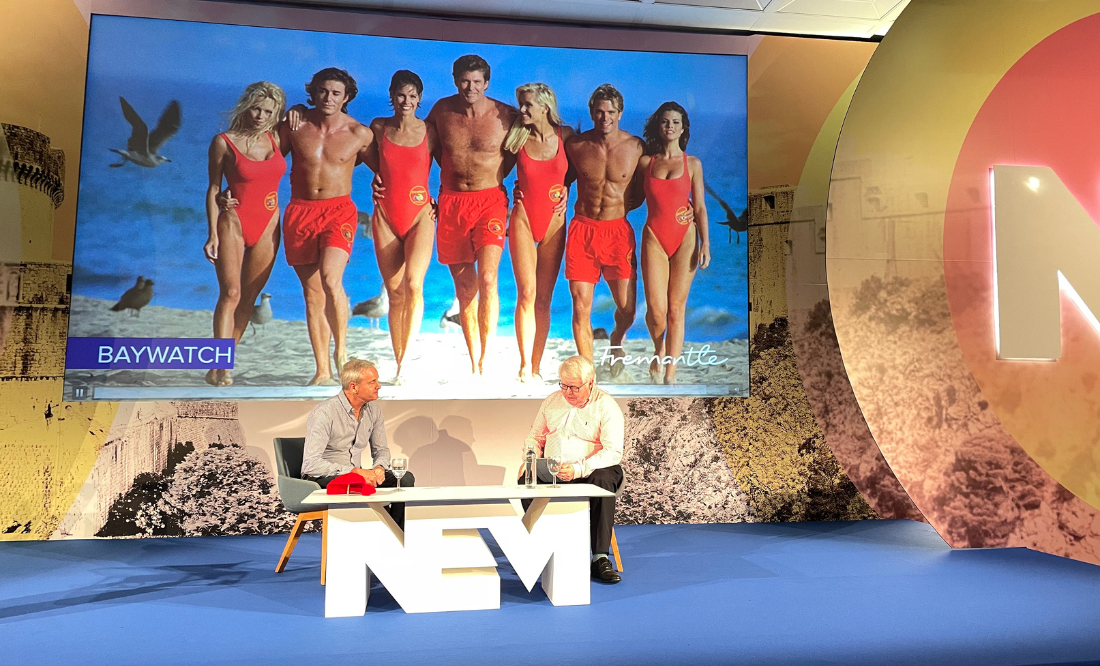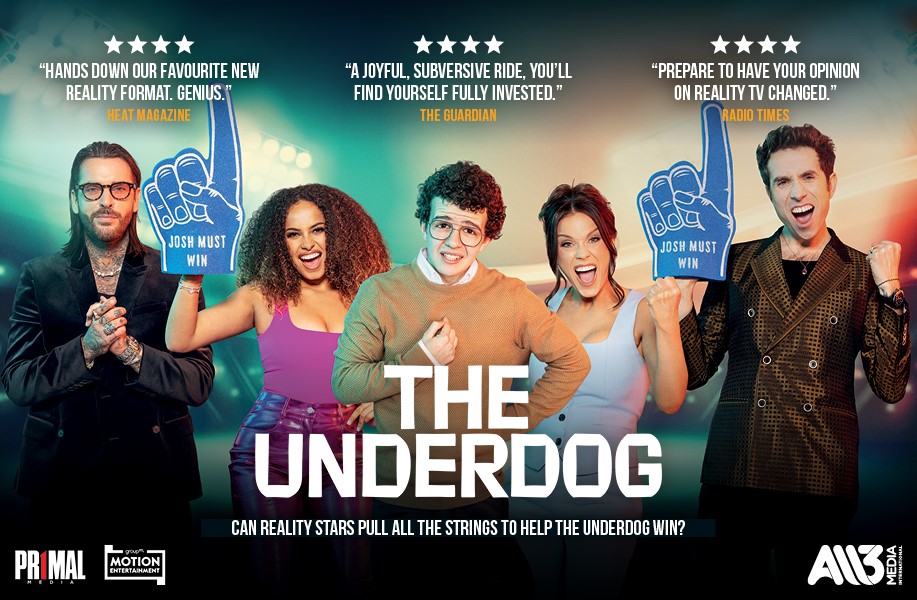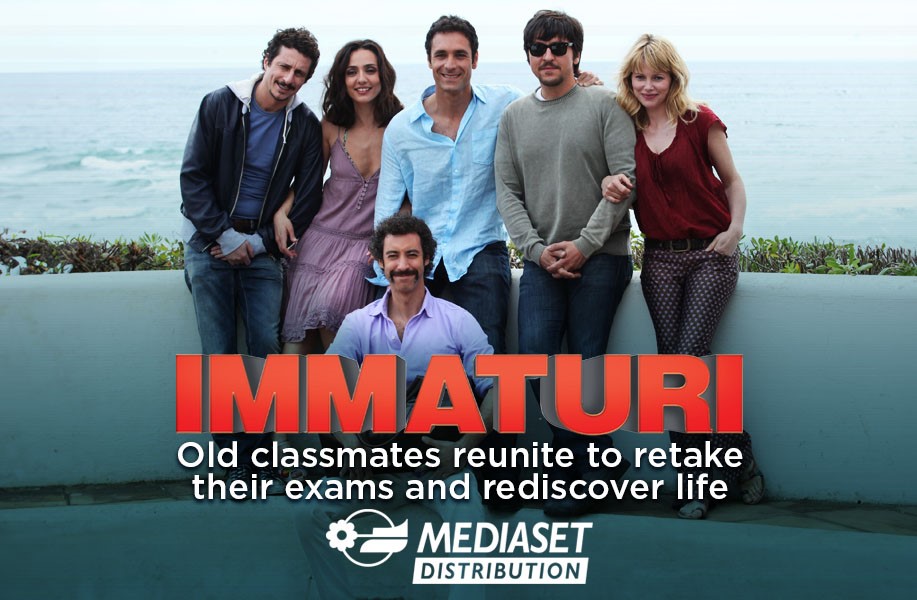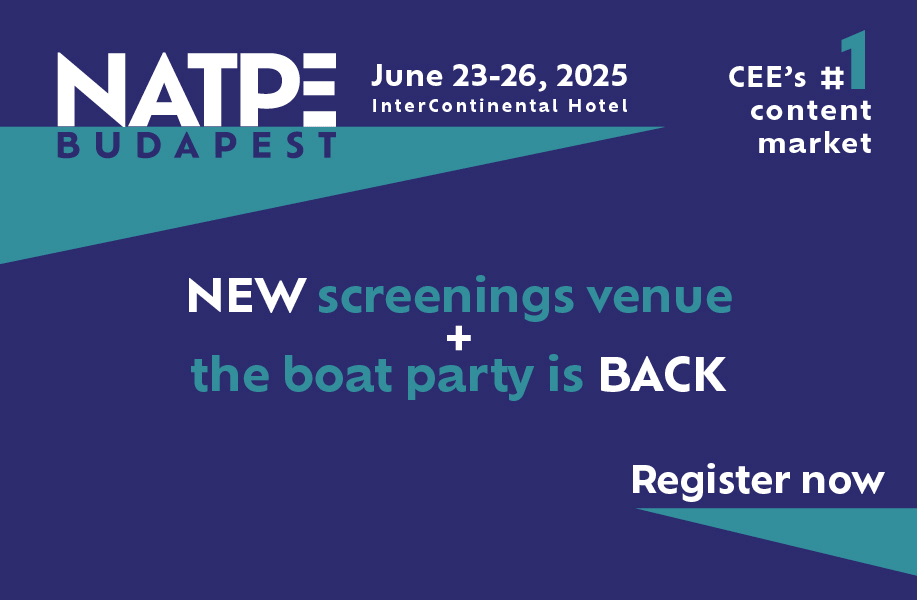On the third day of Nem Dubrovnik held at the Palace Hotel in Croatia from June 9 to 12, a keynote titled "The Power of Global TV Brands," by Bob McCourt, Chief Operating Officer of Commercial and International at Fremantle, offered a compelling journey through the company's storied history, highlighting how strategic acquisitions, iconic formats, and a keen eye for brand longevity have cemented Fremantle's position as a global television powerhouse. His presentation, rich with anecdotes and impressive statistics, underscored the enduring value of well-known intellectual property (IP) in an increasingly fragmented media landscape.
McCourt began by tracing Fremantle's origins back to a pivotal moment in 1995 when heavyweight Greg Dyke was brought in as CEO, later becoming the Director General of the BBC. Dyke's strategic vision led to the hiring of Cecile Frot-Coutaz as his head of strategy, who would later become CEO of Fremantle in 2012. Together, Dyke and Cecile Frot-Coutaz embarked on an aggressive global acquisition spree, purchasing companies like Grundy in Australia, Goodson in America, Ufa in Germany, and All-American Fremantle in the US, along with Talkback in the UK. This resulted in an "incredibly successful studio structure" that boasted enduring hits like Family Feud, The Price is Right, Baywatch, and The Bill. Remarkably, McCourt revealed that these four shows, even 26 years later in 2024, were still among Fremantle's top 10 revenue earners, a testament to the unparalleled longevity of strong brands.
The narrative then fast-forwarded to 2001, another critical turning point. RTL acquired Pearson Television and rebranded it Fremantle. Simultaneously, a nascent talent show called Pop Idol, developed by Simon Fuller and Simon Cowell within Fremantle, exploded onto the scene in the UK. Its immediate success led to the US version, American Idol, starring Simon Cowell as a judge, which became a cultural phenomenon and a global hit, peaking at 26 million viewers in the US alone. The momentum continued with Simon Cowell's development of The X Factor UK in 2003 and Britain's Got Talent two years later, both of which also found immense global success, especially in their American iterations.
By the early 2000s, Fremantle had amassed an "amazing slate of entertainment shows and talent shows," a foundation upon which the next quarter-century of global expansion was built. McCourt rattled off impressive figures: Family Feud is in its 43rd year in the US, The Price is Right its 53rd on CBS and remains the number one daytime show. America's Got Talent just wrapped its 23rd season on ABC, while America's Got Talent launched its 20th season on NBC. Beyond the US, the global reach is staggering, with 75 local versions of Got Talent, 56 Idols, 77 Family Feuds, and 56 X Factors produced over the last 25 years. This region of Croatia, McCourt noted, has been particularly fertile ground for these formats, hosting 22 versions of Got Talent, 12 Idols, 10 Family Feuds, and 12 Price is Right adaptations.
The power of these entertainment shows extends beyond traditional broadcasting into the digital realm. Recognizing the potential of social media, Fremantle embraced posting clips of their talent shows on platforms like YouTube and Facebook around a decade ago. This forward-thinking strategy paid off handsomely, with Fremantle ranking as the seventh-largest content publisher globally on YouTube in 2024. Local production companies collaborate with broadcasters to manage these social channels for both promotional and commercial purposes, supported by dedicated in-house teams in London and partners in the US and Turkey.
McCourt then turned his attention to the burgeoning world of Free Ad-supported Streaming Television (FAST) channels. Fremantle has a dedicated FAST channels team based in the US, and it's no surprise that their most successful ventures in this space are long-running series with extensive libraries and high brand recognition. The Price is Right and Family Feud stand out, available on 12 platforms in the US, showcasing the value of familiar content in the FAST ecosystem. The power of these established brands also extends to various extensions, including merchandising, sponsorship, and phone voting, with dedicated teams in key markets overseeing these lucrative activities.
Beyond the realm of entertainment, McCourt highlighted Baywatch as another incredibly successful Fremantle brand. Despite being a global phenomenon in the 1990s, selling to every territory, its cancellation in 1999 led to a 20-year hiatus from significant sales due to uncleared music and standard definition footage. However, a bold decision in 2018 to remaster all 250 episodes into high definition and clear the music paid off "10 times over." Baywatch has since been re-sold globally, finding new life on platforms like Amazon, Hulu, RTL in Germany, and France TV. Its procedural nature, well-known cast, and extensive episode count also make it ideal for FAST channels, where it is now featured on 16 channels in the US and 18 outside, making it Fremantle's second most successful FAST channel.
Jamie Oliver's culinary empire also stands as a testament to brand power. Fremantle has been selling Jamie Oliver series for 22 years, boasting 60 seasons across 200 territories. A recent five-year output deal ensures continued exclusive rights to all important content. Critically, Fremantle collaborates closely with local broadcasters and book publishers to coordinate TV series launches with book releases, maximizing sales for the Jamie Oliver Group. A dedicated Jamie Oliver FAST channel in the UK, US, and Germany, alongside full episodes on YouTube, further underscores the brand's versatility and success.
The discussion then shifted to Fremantle's strategic pivot into scripted content under CEO Jennifer Mullin, who aimed for a 50-50 split between scripted and unscripted within five years of her 2014 appointment. An early acquisition was the Italian company Wildside, which, after producing The Young Pope, secured the rights to Elena Ferrante's hugely successful "My Brilliant Friend" book series. The resulting TV series, picked up by Rai in Italy and HBO in the US (HBO's first non-English language drama), became an enormous global success, with three more seasons following suit. This, McCourt emphasized, further illustrated "the importance of brands and well-known IP."
Finally, McCourt cited the recent resurgence of Homicide: Life on the Street. This four-time Emmy-winning drama, which revolutionized the TV genre in 1993 and predated The Wire, was a global hit, selling in 170 territories. Like Baywatch, it had been unseen for years due to uncleared music and standard definition. However, a collaboration with NBCU last year to remaster the entire series has brought it back to screens, selling to Sky in the UK, Bell in Canada, SBS in Australia, and many other territories.











